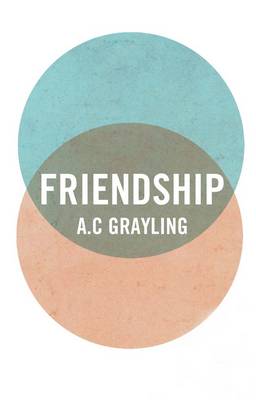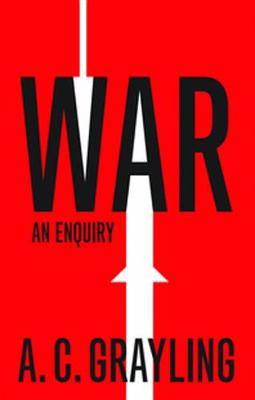Vices and Virtues
2 total works
A central bond, a cherished value, a unique relationship, a profound human need, a type of love. What is the nature of friendship, and what is its significance in our lives? How has friendship changed since the ancient Greeks began to analyze it, and how has modern technology altered...Read more
A central bond, a cherished value, a unique relationship, a profound human need, a type of love. What is the nature of friendship, and what is its significance in our lives? How has friendship changed since the ancient Greeks began to analyze it, and how has modern technology altered its very definition? In this fascinating exploration of friendship through the ages, one of the most thought-provoking philosophers of our time tracks historical ideas of friendship, gathers a diversity of friendship stories from the annals of myth and literature, and provides unexpected insights into our friends, ourselves, and the role of friendships in an ethical life. A. C. Grayling roves the rich traditions of friendship in literature, culture, art, and philosophy, bringing into his discussion familiar pairs as well as unfamiliar--Achilles and Patroclus, David and Jonathan, Coleridge and Wordsworth, Huck Finn and Jim. Grayling lays out major philosophical interpretations of friendship, then offers his own take, drawing on personal experiences and an acute awareness of vast cultural shifts that have occurred.
With penetrating insight he addresses internet-based friendship, contemporary mixed gender friendships, how friendships may supersede family relationships, one's duty within friendship, the idea of friendship to humanity, and many other topics of universal interest.
With penetrating insight he addresses internet-based friendship, contemporary mixed gender friendships, how friendships may supersede family relationships, one's duty within friendship, the idea of friendship to humanity, and many other topics of universal interest.
A renowned philosopher challenges long-held views on just wars, ethical conduct during war, why wars occur, how they alter people and societies, and more
For residents of the twenty-first century, a vision of a future without warfare is almost inconceivable. Though wars are terrible and destructive, they also...Read more
For residents of the twenty-first century, a vision of a future without warfare is almost inconceivable. Though wars are terrible and destructive, they also...Read more
A renowned philosopher challenges long-held views on just wars, ethical conduct during war, why wars occur, how they alter people and societies, and more
For residents of the twenty-first century, a vision of a future without warfare is almost inconceivable. Though wars are terrible and destructive, they also seem unavoidable. In this original and deeply considered book, A. C. Grayling examines, tests, and challenges the concept of war. He proposes that a deeper, more accurate understanding of war may enable us to reduce its frequency, mitigate its horrors, and lessen the burden of its consequences.
Grayling explores the long, tragic history of war and how warfare has changed in response to technological advances. He probes much-debated theories concerning the causes of war and considers positive changes that may result from war. How might these results be achieved without violence? In a profoundly wise conclusion, the author envisions "just war theory" in new moral terms, taking into account the lessons of World War II and the Holocaust and laying down ethical principles for going to war and for conduct during war.
For residents of the twenty-first century, a vision of a future without warfare is almost inconceivable. Though wars are terrible and destructive, they also seem unavoidable. In this original and deeply considered book, A. C. Grayling examines, tests, and challenges the concept of war. He proposes that a deeper, more accurate understanding of war may enable us to reduce its frequency, mitigate its horrors, and lessen the burden of its consequences.
Grayling explores the long, tragic history of war and how warfare has changed in response to technological advances. He probes much-debated theories concerning the causes of war and considers positive changes that may result from war. How might these results be achieved without violence? In a profoundly wise conclusion, the author envisions "just war theory" in new moral terms, taking into account the lessons of World War II and the Holocaust and laying down ethical principles for going to war and for conduct during war.


